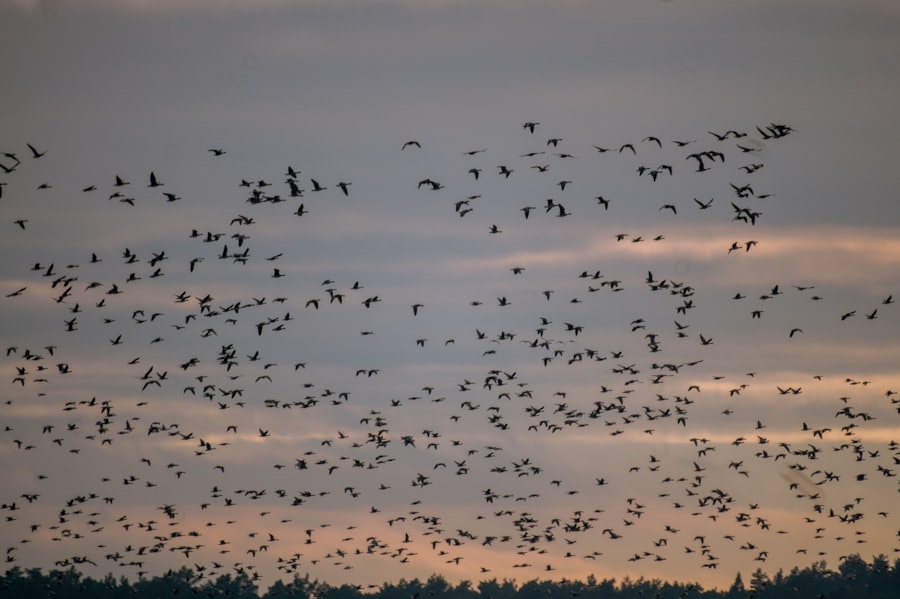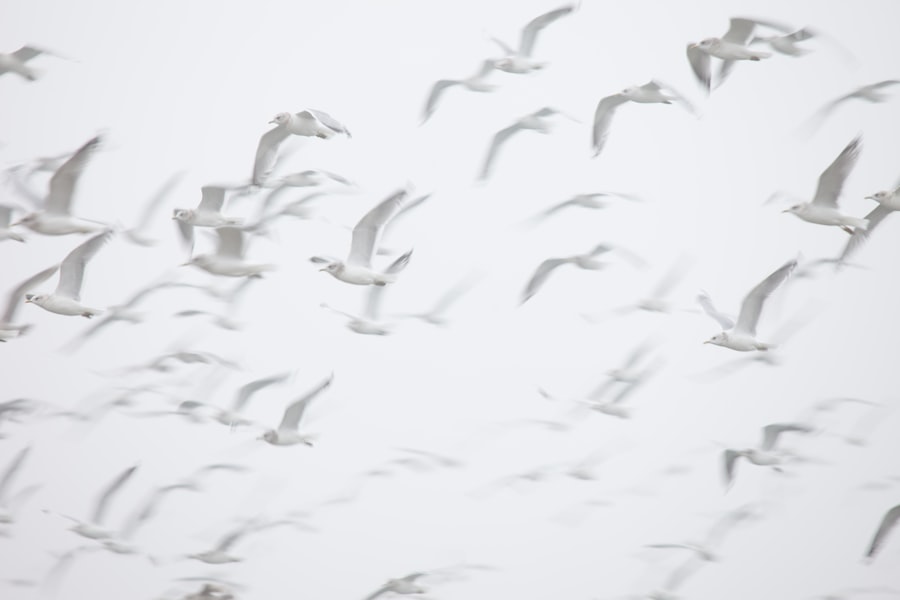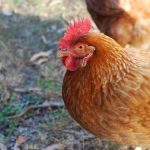Keeping ducks and chickens together can be a successful endeavor for poultry keepers. While these birds have distinct needs and behaviors, proper management allows for harmonious coexistence. Ducks are generally sociable, whereas chickens tend to be more territorial and may display aggression towards newcomers.
However, careful integration can lead to a successful mixed flock. Combining ducks and chickens offers various advantages. Ducks excel at foraging and pest control in gardens, while chickens are effective at scratching and aerating soil.
Both species are productive egg layers, providing a consistent supply of fresh eggs. To maintain a thriving mixed flock, it is essential to understand and accommodate the specific requirements of each species in terms of housing, nutrition, and care.
Table of Contents
- 1 Choosing the Right Breeds for Your Flock
- 2 Coop and Run Considerations for Ducks and Chickens
- 3 Feeding and Watering Ducks and Chickens Together
- 4 Health Considerations for Mixed Flocks
- 5 Integrating Ducks into an Existing Chicken Flock
- 6 Tips for Managing Ducks and Chickens Together
- 7 FAQs
- 7.1 Can ducks and chickens be kept together?
- 7.2 What are the benefits of keeping ducks and chickens together?
- 7.3 What are the challenges of keeping ducks and chickens together?
- 7.4 How should the coop and run be set up for ducks and chickens?
- 7.5 What should be considered when feeding ducks and chickens together?
- 7.6 Are there any health concerns when keeping ducks and chickens together?
Key Takeaways
- Keeping ducks with chickens can be a rewarding experience, but it requires careful planning and consideration of the needs of both species.
- When choosing breeds for your mixed flock, look for chickens and ducks that are similar in size and temperament to minimize potential conflicts.
- Coop and run design should take into account the different needs of ducks and chickens, including access to water for ducks and roosting space for chickens.
- Feeding and watering ducks and chickens together can be done, but it’s important to provide separate feeding and watering stations to prevent competition and ensure all animals get the nutrition they need.
- Health considerations for mixed flocks include monitoring for diseases that can affect both ducks and chickens, as well as providing appropriate shelter and protection from predators for both species.
Choosing the Right Breeds for Your Flock
Compatible Duck Breeds
Popular duck breeds such as Pekin, Khaki Campbell, and Indian Runner are known for their calm and sociable nature, making them well-suited for cohabitating with chickens. These breeds also tend to be similar in size to most standard chicken breeds, reducing the risk of aggression or bullying within the flock.
Choosing the Right Chicken Breeds
When selecting chicken breeds to coexist with ducks, it is important to choose breeds that are not overly aggressive or territorial. Docile breeds such as Orpingtons, Australorps, and Silkies are known for their gentle temperament and can be more accepting of new additions to the flock.
Environmental Considerations
Additionally, choosing chicken breeds that are cold-hardy and adaptable to various environmental conditions can help ensure the well-being of both ducks and chickens in the mixed flock.
Coop and Run Considerations for Ducks and Chickens

Creating a suitable living environment for a mixed flock of ducks and chickens requires careful consideration of housing and outdoor space. Ducks and chickens have different housing needs, with ducks requiring access to water for swimming and bathing. When designing a coop and run for a mixed flock, it is important to provide separate areas for ducks to access water while ensuring that chickens have ample space for roosting and nesting.
In the coop, providing separate nesting boxes for ducks and chickens can help prevent competition for nesting space and reduce stress within the flock. Additionally, incorporating ramps or low platforms into the design can make it easier for ducks to access their sleeping area without difficulty. In the outdoor run, creating a pond or shallow water feature for ducks to swim in can provide enrichment and meet their natural behavior needs, while also ensuring that chickens have access to dry areas for dust bathing and foraging.
Feeding and Watering Ducks and Chickens Together
Feeding a mixed flock of ducks and chickens requires careful consideration of their dietary needs and feeding behaviors. Ducks have a higher requirement for niacin compared to chickens, so it is important to provide a balanced diet that meets the nutritional needs of both species. Choosing a high-quality poultry feed that is suitable for ducks and chickens can help ensure that all birds receive the essential nutrients they need for optimal health and egg production.
When it comes to watering, ducks have different water requirements compared to chickens. Ducks need access to water for swimming and bathing, while chickens require clean water for drinking. Providing separate water sources for ducks and chickens can help prevent contamination and ensure that both species have access to clean water at all times.
Additionally, incorporating shallow water dishes or tubs in the outdoor run can provide ducks with opportunities for swimming and enrichment while ensuring that chickens have access to clean drinking water.
Health Considerations for Mixed Flocks
Maintaining the health of a mixed flock of ducks and chickens requires proactive management and regular monitoring for signs of illness or disease. Ducks are more susceptible to certain diseases such as botulism and aspergillosis, which can be transmitted to chickens if proper hygiene practices are not followed. It is important to keep the coop and run clean and dry, regularly removing soiled bedding and feces to prevent the buildup of harmful bacteria and pathogens.
Regular health checks and observation of the flock can help identify any signs of illness or injury early on, allowing for prompt intervention and treatment. Providing regular access to fresh water, clean bedding, and a balanced diet can help support the overall health and well-being of both ducks and chickens in the mixed flock. Additionally, consulting with a poultry veterinarian or experienced poultry keeper can provide valuable guidance on disease prevention and management strategies for mixed flocks.
Integrating Ducks into an Existing Chicken Flock

Ducks should be introduced to the chicken flock at a young age, ideally as ducklings raised alongside chicks to promote social bonding and acceptance.
Initial Separation
Providing separate living quarters within the coop initially can allow ducks and chickens to become familiar with each other’s presence without direct interaction.
Gradual Introduction and Enrichment
Gradually introducing ducks to the outdoor run under supervision can help monitor their interactions with the existing chicken flock and intervene if any aggressive behavior occurs. Providing enrichment such as scattered treats or foraging opportunities can help distract the birds from potential conflicts and promote positive interactions. With patience and consistent supervision, ducks can be successfully integrated into an existing chicken flock, creating a harmonious mixed flock environment.
Tips for Managing Ducks and Chickens Together
Managing a mixed flock of ducks and chickens requires ongoing observation, proactive care, and attention to their unique needs. Providing ample space in the coop and run can help reduce competition for resources and minimize stress within the flock. Additionally, ensuring that both species have access to suitable housing, feeding, and watering facilities can help promote their overall well-being.
Regularly monitoring the health of the flock, maintaining cleanliness in the coop and run, and providing enrichment opportunities can help support the physical and behavioral needs of both ducks and chickens. Consulting with experienced poultry keepers or joining online forums and communities dedicated to mixed flocks can provide valuable insights and support for managing ducks and chickens together. With proper planning, care, and attention to their individual requirements, keeping ducks and chickens together can be a rewarding experience for poultry enthusiasts.
If you’re considering keeping ducks with chickens, you may also be interested in learning about when guinea fowl lay eggs. Guinea fowl can be a great addition to a poultry flock, and understanding their egg-laying habits can help you plan for their care and management. Check out this article on when guinea fowl lay eggs to learn more about these unique birds.
FAQs
Can ducks and chickens be kept together?
Yes, ducks and chickens can be kept together in the same coop and run, as long as there is enough space and proper management to accommodate both species.
What are the benefits of keeping ducks and chickens together?
Keeping ducks and chickens together can provide mutual protection from predators, as they have different alert behaviors. Ducks can also help control pests in the coop and run, and their droppings can contribute to the overall health of the soil.
What are the challenges of keeping ducks and chickens together?
One challenge of keeping ducks and chickens together is that ducks require access to water for swimming and cleaning, which can create wet and muddy conditions in the coop and run. Additionally, ducks have different dietary and housing needs compared to chickens.
How should the coop and run be set up for ducks and chickens?
The coop and run should have separate areas for ducks and chickens to roost and nest, as well as access to water for the ducks. The flooring should be designed to accommodate the wet and muddy conditions that ducks create.
What should be considered when feeding ducks and chickens together?
Ducks and chickens have different nutritional needs, so it’s important to provide a balanced diet for both species. Additionally, ducks require access to water while eating, so their feed should be placed near their water source.
Are there any health concerns when keeping ducks and chickens together?
One health concern when keeping ducks and chickens together is the potential for disease transmission between the two species. It’s important to practice good biosecurity measures and monitor the health of both ducks and chickens regularly.
Meet Walter, the feathered-friend fanatic of Florida! Nestled in the sunshine state, Walter struts through life with his feathered companions, clucking his way to happiness. With a coop that’s fancier than a five-star hotel, he’s the Don Juan of the chicken world. When he’s not teaching his hens to do the cha-cha, you’ll find him in a heated debate with his prized rooster, Sir Clucks-a-Lot. Walter’s poultry passion is no yolk; he’s the sunny-side-up guy you never knew you needed in your flock of friends!







